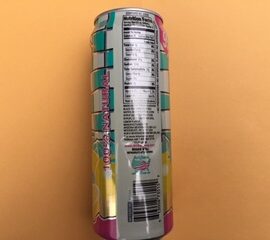Simulations by economists say they should
Does real-world evidence agree?
Sugar-sweetened beverages provide little or no nutritional benefit. A recent review finds that higher intake predicts increased risk of type 2 diabetes, weight gain, and coronary heart disease. Our bodies may not properly account for the caloric value of sugar-sweetened beverages. The “extra” 140 calories in a 12-ounce soda may not sound like much. But over the course of a year, those extra calories could lead to nearly a pound in increased body weight. Over a decade, it amounts to an extra 9 pounds of body weight. Higher intakes of sugar-sweetened beverages are also associated with adverse metabolic outcomes including high waist circumference, high LDL-cholesterol, high triglycerides, and hypertension. The adverse effects of the fructose in sugar-sweetened beverages appear to increase for sedentary people. The current evidence supports public health efforts to limit sugar-sweetened beverage consumption.
The World Health Organization recommends a 20 percent tax on added sugar to reduce consumption. Many countries and within-country jurisdictions have enacted taxes on sugar-sweetened beverages. A recent systematic review and meta-analysis used data from 17 outcomes to determine if taxes on sugar-sweetened beverages actually led to lower consumption. Researchers found that, overall, a 10 percent tax caused a 10 percent decline in sugar-sweetened beverage consumption. In addition, the tax led to a non-significant 1.9 percent increase total untaxed beverage intake. Thus, taxes may be an effective way to reduce consumption of sugar-sweetened beverages.
Diabetes exacts a huge financial burden on the US. Happily, type 2 diabetes is almost entirely preventable. A new systematic review and meta-analysis of 39 studies found cost-effective interventions that target high-risk individuals and general populations. Cost-effectiveness was evaluated in terms of median incremental cost-effectiveness ratio (ICER) measured in terms of cost per quality-adjusted life years (QALY). Interventions that targeted high-risk individuals were cost-effective based valuing one quality of life year at $50,000 (2017 US dollars). The median ICER costs of interventions with high-risk individuals from a medical care system and societal perspective were $12,510 and $17,089 per QALY, respectively. Even better, interventions that followed the Diabetes Prevention Program protocol had a median ICER of $6,212 per QALY.
Some of the interventions for high-risk individuals were cost-saving, meaning that total medical costs (including that of the intervention) would decline due to the interventions. Among population-based interventions, taxes on sugar-sweetened beverages were cost-saving from both medical care system and governmental perspectives. Both cost-effective and cost-saving interventions aimed at high-risk individuals could potentially prevent most new cases of type 2 diabetes. That's a big deal!
Do taxes on sugar-sweetened beverages reduce their consumption in lower-income areas? South Africa initiated a Health Promotion levy (tax) on sugar-sweetened beverages with more than 4 grams of sugar per 100 ml in 2018. The structure of the tax would motivate customers to buy fewer sugar-sweetened beverages and incentivize manufacturers to reduce the sugar content of their beverages.
Researchers at the University of North Carolina and the University of the Western Cape investigated the purchases of sugar-sweetened beverages before and one year after the tax went into effect in a low-income township in South Africa. Beverage consumption data came from door-to-door surveys of 2,489 households. For taxed beverages, sugar intake declined significantly by 9.1 grams per day from pre-tax to post-tax (28.0 to 19.8). For untaxed beverages, sugar intake increased significantly by 5.2 grams per day (15.0 to 20.2). The net decline in sugar intake from all beverages was 3.7 grams per day.
Behavioral changes in buying habits and industrial reformulations of beverages accounted for 22 and 9 percent reductions in sugar intake, respectively. The caloric intake from all beverages declined insignificantly by 10 calories per day. The volume of all beverages consumed increased significantly by 223 ml, reflecting greater intake of reformulated beverages with less sugar and more water. Overall, the tax appeared to foster two positive developments: 1) reduced consumption of taxed sugar-sweetened beverages, and 2) reduced sugar content of beverages. Both of these contributed to lower sugar consumption.
Philadelphia, Pennsylvania, began taxing sugar-sweetened beverages at a rate of 1.5 cents per fluid ounce on January 1, 2017. A team of researchers in Philadelphia and Baltimore studied the effects of the beverage tax one year after its inception. As expected, they found that consumption of sugar-sweetened beverages declined in Philadelphia. But would this decline continue in the future? And how would purchase behaviors in Philadelphia compare to nearby Baltimore, which does not have a sugar-sweetened beverage tax? To answer this question, researchers studied consumption of sugar-sweetened beverages and high-sugar snacks two years after the tax began. The updated study focused on small, independent stores where sugary beverages and snacks comprise a substantial portion of total food sales. Research assistants stood outside a sample of 116 food stores in Philadelphia and Baltimore and asked exiting customers if they would agree to a shopping bag inspection.
The price of taxable beverages increased by 2.06 cents per fluid ounce in Philadelphia compared to Baltimore, an increase of 33 percent. Purchases of taxed beverages declined by a significant 42 percent (about 6 fluid ounces per person per day) in Philadelphia compared to Baltimore. Purchases of non-taxed beverages did not change significantly. Purchases of taxable beverages declined more in low-income neighborhoods and by customers with low education level. Total energy intake from beverages declined significantly by 75 calories per person per day in Philadelphia compared to Baltimore, while energy intake from high-sugar snacks decreased non-significantly in both cities. Thus, the tax on sugar-sweetened beverages appears have reduced consumption of sugary beverages in Philadelphia. Sugar-sweetened beverages may be increasingly regarded like alcohol and tobacco: harmful products whose intake can be reduced through additional tax.








